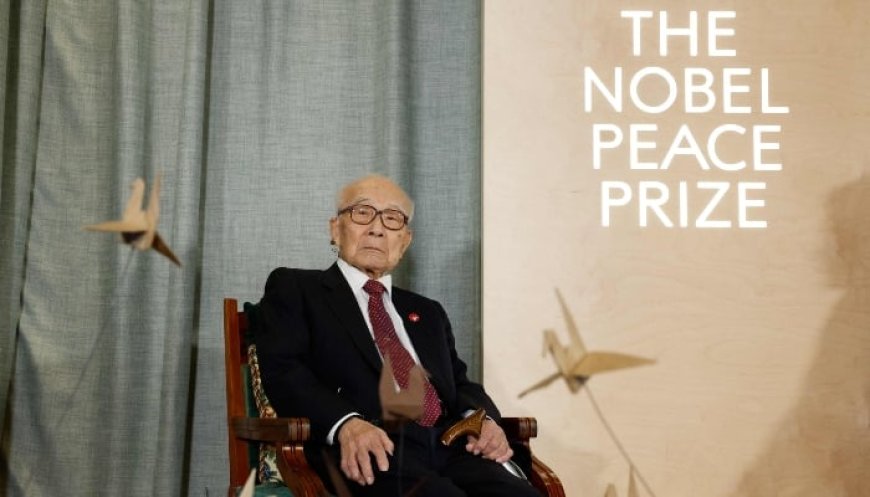Japan’s atomic bomb survivors to receive Nobel Prize in Oslo

1. Survivors of Hiroshima, Nagasaki recognised for advocacy against nuclear weapons
OSLO: The Nobel Peace Prize for 2024 will be awarded on Tuesday to Japan's atomic bomb survivors’ group, Nihon Hidankyo, for its unwavering advocacy against nuclear weapons. This recognition comes as the threat of nuclear conflict resurfaces 80 years after the bombings of Hiroshima and Nagasaki.
The three co-chairs of Nihon Hidankyo will receive the prestigious honor during a ceremony at Oslo City Hall, starting at 1 p.m. (1200 GMT). The award highlights growing global concerns, especially with Russia's actions raising fears of breaching the long-standing taboo against using nuclear weapons.
“Nuclear weapons and humanity cannot co-exist,” said Nihon Hidankyo co-chair Terumi Tanaka during a press conference in Oslo on Monday. The 92-year-old, who was 13 when the bomb fell on Nagasaki, warned that nuclear threats could lead to humanity’s end before climate change causes catastrophic damage.
Nihon Hidankyo continues to work relentlessly to eliminate weapons of mass destruction by sharing the testimonies of hibakusha—survivors of Hiroshima and Nagasaki. The atomic bombings on August 6 and 9, 1945, killed approximately 140,000 people in Hiroshima and 74,000 in Nagasaki, leading to long-term health issues such as radiation sickness and cancer. The bombings ultimately compelled imperial Japan to surrender on August 15, 1945.
Tanaka expressed concern over Russian President Vladimir Putin’s nuclear rhetoric amid the war in Ukraine. “President Putin doesn’t seem to understand what nuclear weapons mean for humanity,” he stated.
Since Russia's full-scale invasion of Ukraine in February 2022, Putin has repeatedly made nuclear threats and recently signed a decree lowering the threshold for their use. In November, Russia escalated the conflict by firing a new Oreshnik hypersonic missile—capable of carrying a nuclear warhead—at the Ukrainian city of Dnipro, though it was used with a conventional payload.
Jorgen Watne Frydnes, chairman of the Norwegian Nobel Committee, stressed the importance of maintaining the nuclear taboo. “Threatening to use nuclear weapons undermines the moral stance against them. No nation should ever use them again,” he said.
Nuclear threats are also fueled by North Korea’s missile tests and concerns over Iran’s potential nuclear program. Currently, nine nations possess nuclear weapons: the United States, Russia, China, Britain, France, India, Pakistan, North Korea, and, unofficially, Israel.
Although 122 countries adopted the UN Treaty on the Prohibition of Nuclear Weapons (TPNW) in 2017, no nuclear-armed state has signed the treaty, limiting its impact.
The Nobel Prizes for medicine, physics, chemistry, literature, and economics will be awarded separately in Stockholm.


















































